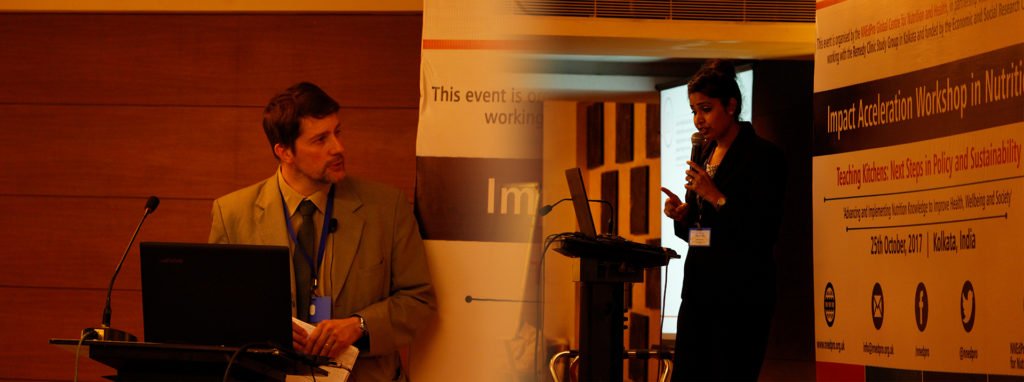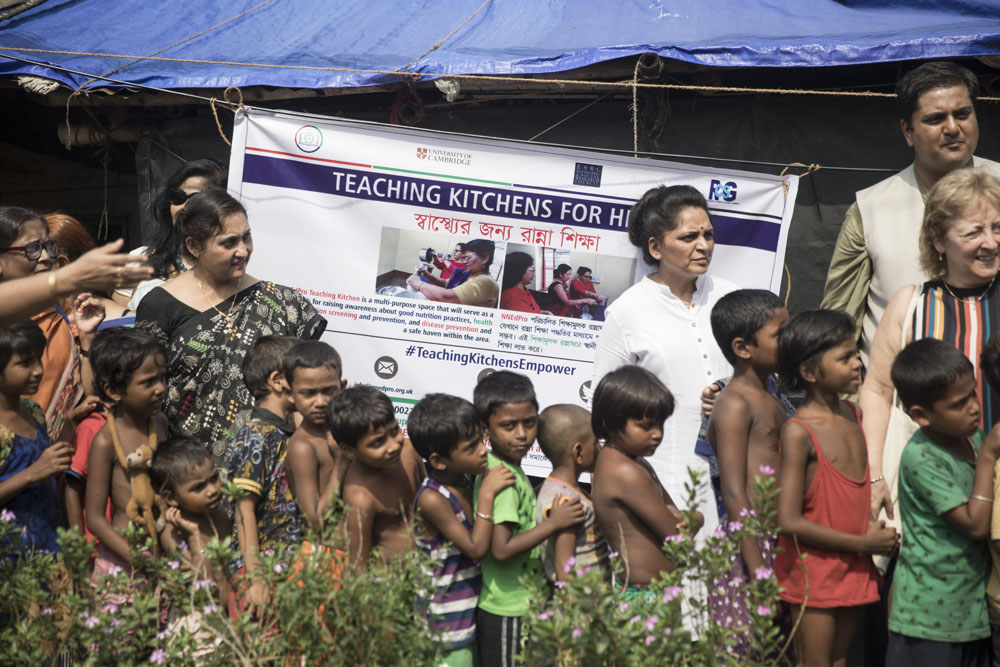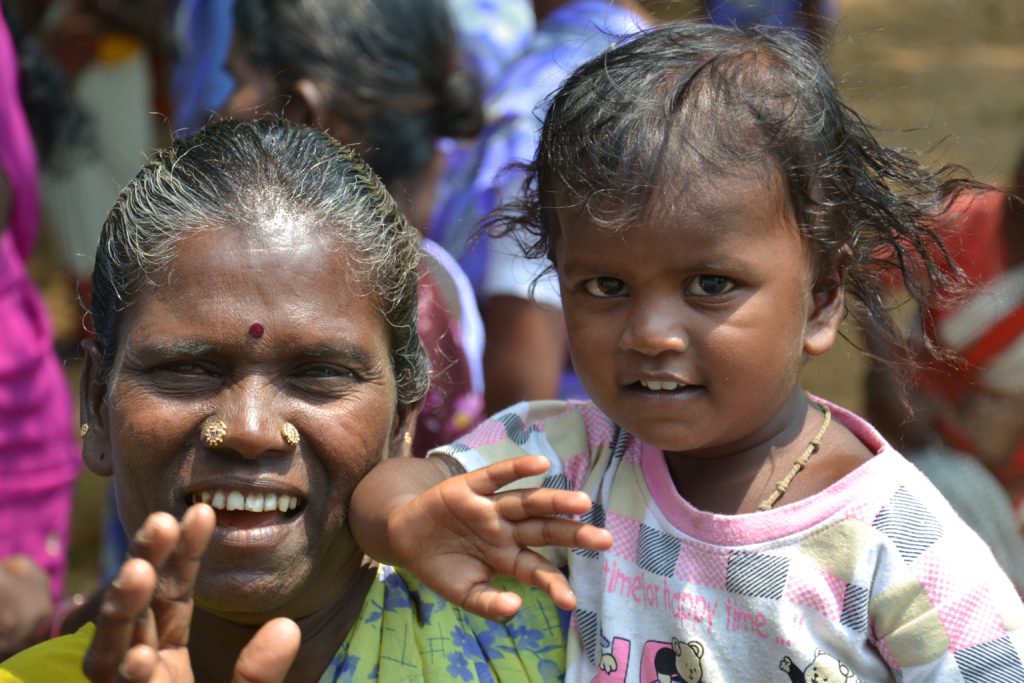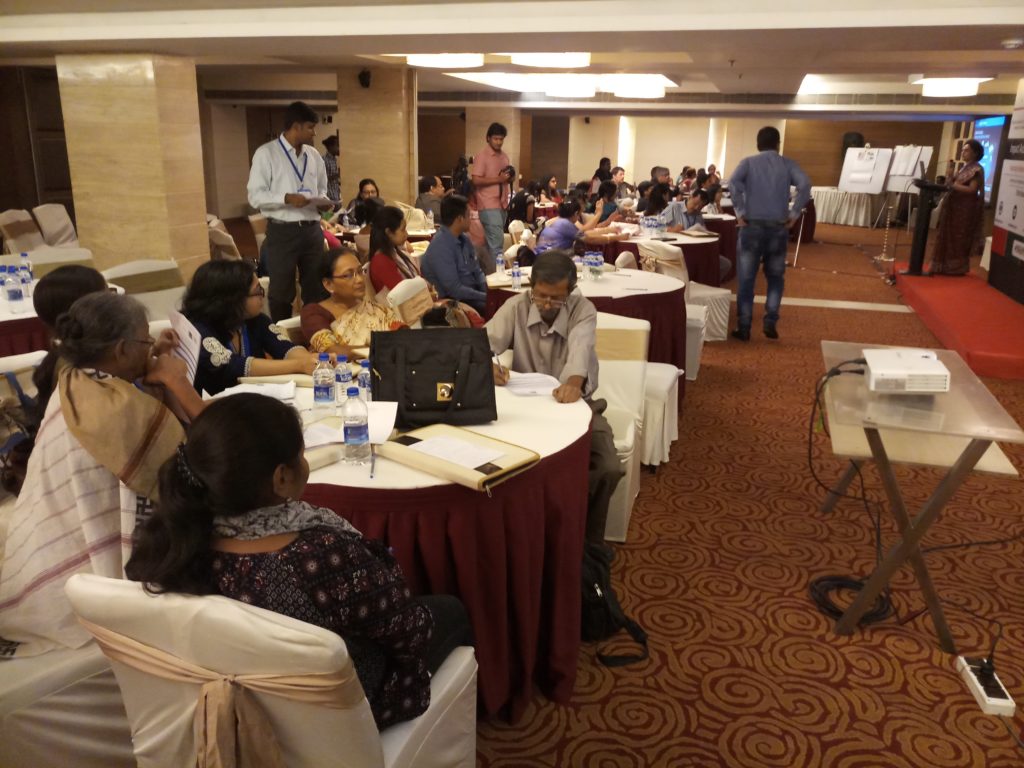Teaching Kitchens to accelerate nutrition education
In a country like India where 43 pc of children under five years of age are malnourished, the importance of nutrition education still remains an abyss.
Malnourishment or under-nutrition remains a persistent problem in developing countries, especially with 90 pc of the developing world’s chronically undernourished (stunted) children living in Asia and Africa.
The effects of under-nutrition can be adverse ranging from severe to mild that can undermine the survival, growth and development of children and women which ultimately affects the strength and capacity of a nation. “With persistently high levels of undernutrition in the developing world, vital opportunities to save millions of lives are being lost, and millions of children are not growing and developing to their full potential,” reports UNICEF.
“Nutrition is a core pillar of human development and concrete, large-scale programming not only can reduce the burden of undernutrition and deprivation in countries but also can advance the progress of nations,” it adds.
In India, 20 pc of children under five years of age suffer from wasting due to acute undernutrition. More than one-third of the world’s children who are wasted live in India.
According to the UNICEF figures, 43 pc of the Indian children under five years are underweight and 48 pc i.e., 61 million children are stunted due to chronic undernutrition. India accounts for more than 3 out of every 10 stunted children in the world.
A balanced step

Dr. Ville Päivänsalo, NNEdPro Senior Collaborator and Dr. Minha Rajput-Ray, NNEdPro Medical Director were two of the speakers at the workshop (left to right)
NNEdPro in association with The University of Cambridge, Economic and Social Research Council and Remedy Clinic Study Group launched two Teaching Kitchens in the slums of Kolkata and engaged with stakeholders in an Impact Acceleration Workshop in Nutrition to sensitise the under-addressed issue of nutrition.
The NNEdPro Global Centre for Nutrition and Health is an international and interdisciplinary think-tank, training academy and knowledge network; anchored in Cambridge it is dedicated to nutrition and health improvement via education, research, evaluation and advocacy.
NNEdPro’s Teaching Kitchen initiative is a multi-purpose space that aims to serve as a community hub for raising awareness about good nutrition practices, health promotion, malnutrition screening and prevention, and disease prevention while regarding hygiene and measuring the magnitude of health hazards within the area.
While undernutrition is substantially higher in rural than in urban areas, the condition of the slums is not much better off. On October 24, 2017, NNEdPro launched its’ pilot Teaching Kitchen project in the slum areas of Chetla and R G Kar Canal where delegates and community workers showcased and demonstrated how the Teaching Kitchen space can be utilised by local communities through distribution of a nutritionally balanced locally prepared meal in addition to holding taster cooking demonstrations and engaging with the local communities.

The Teaching Kitchen initiative is aimed at nutrition education among the slum dwellers Photo: Swastik Pal
Professor Sumantra Ray, NNEdPro Founding Chair and Executive Director stated, “NNEdPro’s Teaching Kitchen initiative was launched with an agenda to address the underlying issue of malnutrition. The importance of a balanced meal can be achieved even within set parameters and that is what we primarily aim to teach with the Teaching Kitchen. We chose the two slums of Kolkata, as a model for further developing Teaching Kitchens throughout other slums of West Bengal and in the neighbouring states. The two slums are distinct and thus will provide a distinct case study as to what measures work primarily in different slum scenarios. The bigger goal is to curb malnutrition even before a child is born.”
Undernutrition is more common for children of mothers who are undernourished themselves i.e. with a body mass index below 18.5 than for children whose mothers are not undernourished. The percentage of children who are severely underweight is almost five times higher among children whose mothers have no education than among children whose mothers have 12 or more years of schooling.
The Impact Acceleration Workshop which followed the launch of the Teaching Kitchens was critical for furthering awareness of the Teaching Kitchens and saw intense discussions around nutrition, education, and even issues of food, faith and the goals of development.
Pauline Douglas, NNEdPro Vice-Chair and Education Director stated in her speech that it is important to understand the culture of the nation and the local practices in order to identify the problem at its roots. She said, “It is important to get to talk to people at their level in order to get across to them. In order to solve the issue of undernutrition, ground level work is important in a way that the measures implemented are first country-specific and secondly region specific. “
The Workshop brought together a diverse group of over 80 stakeholders from Health, Academia, NGOs, Civil Society, Government sectors alongside key influencers with the aim of strengthening dialogues in the fields of education and nutrition to end malnutrition by 2025.











